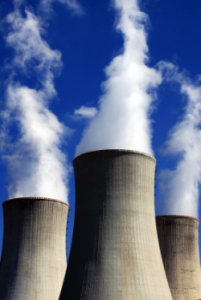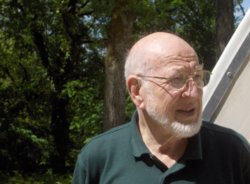A Nuclear Renaissance in the Middle East?
31 Dec, 2008 11:54 am
It is difficult to see how the security threats raised by the spread of nuclear power to the Middle East can be controlled except by the strengthening of the Nuclear Non-Proliferation Treaty (NPT), the world?s main barrier to the spread of nuclear weapons.
 |
Civil and military nuclear technologies are essentially the same. There are, therefore, powerful reasons to be concerned at the prospect of the nuclear renaissance spreading to the
New or revived plans to generate electricity or desalinate water by nuclear power are being explored in Algeria, Bahrain, Egypt, the Gulf States, Israel, Jordan, Kuwait, Libya, Morocco, Oman, Qatar, Saudi Arabia, Syria, Tunisia, the United Arab Emirates, and Yemen (1). This nuclear upsurge is remarkable given the plentiful sources of non-nuclear energy in the region and the current lack of nuclear energy there.
Each of the countries considering nuclear power says that its interest is related to the need to diversify its energy sources and to the economic benefits of nuclear power (2). Also mentioned is the need to use nuclear energy to desalinate sea-water to alleviate growing shortages of water. But many, if not most, of them are probably also attracted by the option of developing nuclear weapons that a civil nuclear programme would give them.
This is certainly what is generally assumed about the nuclear programme of
The
Iran
The fact that
Middle Eastern countries are being encouraged to develop civil nuclear programmes by
A number of Arab countries have accumulated significant experience with nuclear technology, mainly by operating research reactors, normally used to train people in nuclear physics and engineering and to produce radioactive isotopes for medical, industrial and agricultural uses.
Egypt
Egypt
Egypt
It is difficult to see how the security threats raised by the spread of nuclear power to the
References
1.World Nuclear Association, Emerging Nuclear Energy Countries. www.world-nuclear.org/info/inf102.html
2. International Institute for Strategic Studies, Nuclear Programmes in the Middle East: In the shadow of
3. Greg Bruno, Council on Foreign Relations,
4. Stockholm International Peace Research Institute (SIPRI), Armaments, Disarmament and International Security, SIPRI Yearbook 2008, Oxford University Press, 2008, p.396.
5. Nuclear Engineering International, World Nuclear Industry Handbook 2007, Research and Test Reactors,
6. The text of the NPT is available at: www.disarmament.un.org/wmd/npt/
-
12/12/12
“Peak Oil” is Nonsense… Because There’s Enough Gas to Last 250 Years.
-
05/09/12
Threat of Population Surge to "10 Billion" Espoused in London Theatre.
-
05/09/12
Current Commentary: Energy from Nuclear Fusion – Realities, Prospects and Fantasies?
-
04/05/12
The Oil Industry's Deceitful Promise of American Energy Independence
-
10:00
Shaky Foundations for Offshore Wind Farms







 Read more
Read more